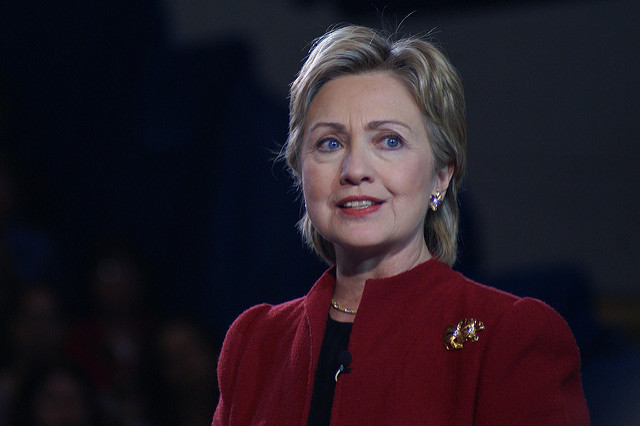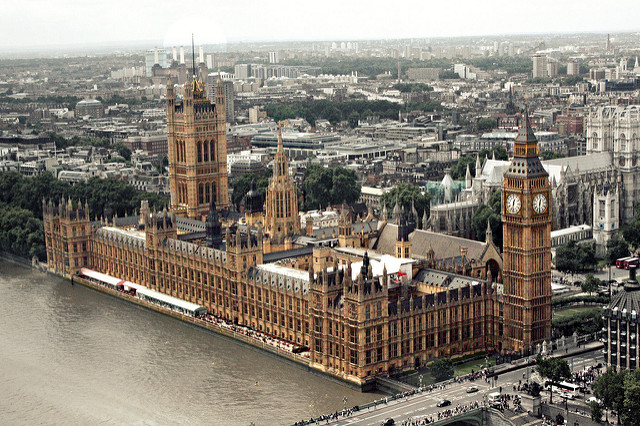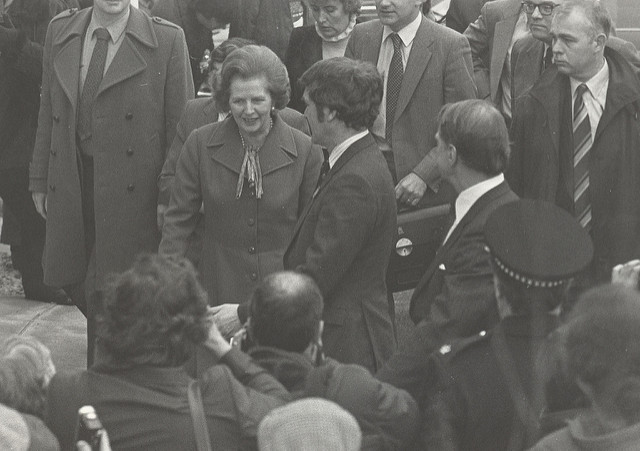One Reason the U.S. Hasn't Elected a Female President
By:
Hillary Clinton suffered a startling defeat in November, leading many Americans to wonder:
Will the United States ever see a female president?
If not now — with an immensely experienced candidate like Clinton running against a uniquely inexperienced candidate like Donald Trump — then when?
 Marc Nozell/Flickr - flickr.com
Marc Nozell/Flickr - flickr.com
Clinton's popularity plummeted every time she sought a higher office — suggesting a bias in the minds of the public against women who seek power.
But Saturday's enormous demonstrations by women around the world again lead to the question: If England and Germany and Pakistan can have women as leaders, then why not the United States?
There are a number of factors at play, but one big difference between the U.S. and most other democracies is the way we choose our head of government.
A prime minister isn't a president (and neither is a chancellor).
 Misko/Flickr - flickr.com
Misko/Flickr - flickr.com
Many of the world's democracies employ a parliamentary system. Parliamentary democracies — such as the United Kingdom, Germany, India, and Israel, among others — don't let citizens vote for a prime minister directly. Rather, they vote for a political party, and the party's members of parliament elect the prime minister. This usually means the prime minister winds up being the leader of whatever party holds the most seats in parliament.
The U.K.'s Margaret Thatcher and Theresa May, Israel's Golda Meir, Germany's Angela Merkel, and Pakistan's Benazir Bhutto are some of the women who shattered the glass ceiling. They were each elected to lead their countries not by the people directly but by members of parliament.
.jpg?auto=format&crop=faces&fit=crop&q=60&w=736&ixlib=js-1.1.0) thierry ehrmann - flickr.com
thierry ehrmann - flickr.com
A presidential system lets the people elect the commander in chief directly. (The United States has a slightly different system: the Electoral College.) A candidate's public persona — which may differ from their private one — plays a much bigger role in persuading the electorate to choose them.
So, what, members of parliament aren't sexist?
Not necessarily. More likely, what's at play is that voting for a colleague is very different from voting for a stranger. Ezra Klein noted that people who knew Clinton personally liked her a lot more than did the general public. Clinton's public image as a power-hungry, "nasty" woman was at odds with Clinton's real personality.
Members of parliament don't vote for "a woman" in the abstract: They vote for a colleague. Stereotypes mean little when you're dealing with someone you know.
British MPs in 1979, for example, didn't view Margaret Thatcher as a power-hungry shrew. Rather, she was their colleague Margaret, and their personal relationships with her surely made her bid for prime minister more successful. Any bias they may have had against women in general was minimized because of their personal relationship.
 University of Salford Press Office/Flickr - flickr.com
University of Salford Press Office/Flickr - flickr.com
Have any women been directly elected?
Yes, about 20 throughout history in nations including Iceland, Ireland, Liberia, Brazil, and South Korea.
But other nations have chosen female prime ministers 43 times, an imbalance suggesting the obstacles faced by female politicians dealing with the general public.
Does this explain why the U.S. hasn't had a female president yet?
Hardly. There are a number of other factors at play, and sexism in the United States is potent, regardless of what system we have to choose our leader. Many other countries have directly elected women to their highest office. It is also important to keep in mind that comparisons among parliamentary countries aren't apples-to-apples.
Then there's the elephant in the room: Most countries do not have an Electoral College, which values some voters more than others. Had the United States elected a president based solely on popular vote, we would already have achieved the important milestone of having our first woman leader.
